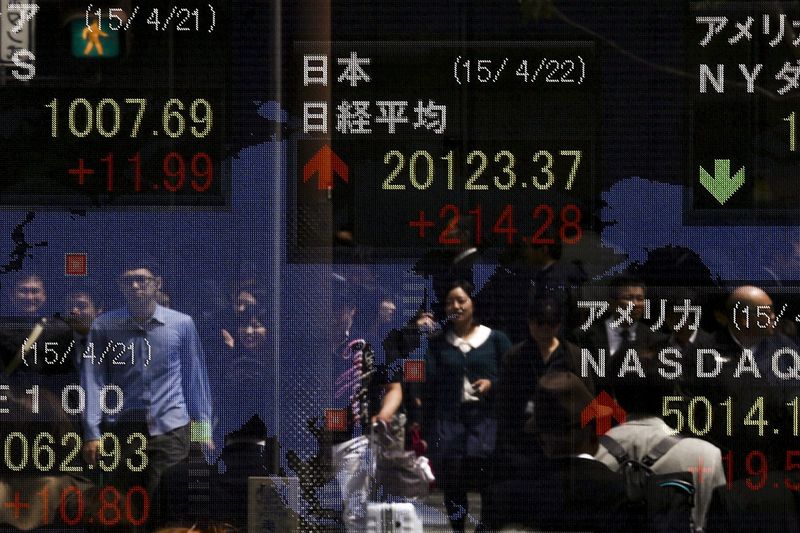Select Language

Asian stocks extended steep losses on Friday as fears of a global recession intensified following U.S. President Donald Trump’s announcement of sweeping trade tariffs.
Japan’s Nikkei 225 led regional declines, falling over 2.4%, while broader markets across South Korea, and Australia also retreated sharply.
Stock markets in China, Hong Kong, Taiwan, and Indonesia were closed on Friday for respective public holidays, contributing to thin trading volumes in the region.
Friday’s sell-off followed a dismal session on Wall Street, where major U.S. indexes plummeted.
The S&P 500 tumbled 4.8% on Thursday, its biggest one-day drop in nearly five years, while the tech-heavy NASDAQ Composite slid 6%. The sharp U.S. losses spilled over into Asian markets, as traders braced for prolonged volatility.
Asia braces for economic hit from Trump’s aggressive tariffs
Trump’s tariffs included a blanket 10% duty on all imports, alongside higher, targeted levies of up to 49% on some nations.
China now faces a combined 54% tariffs, with the 20% tariffs already in place.
Trump’s aggressive trade stance has sparked concern that global supply chains—many of which are centered in Asia—could be severely disrupted, leading to slower economic growth in export-reliant economies.
China, Japan, and South Korea, which count the U.S. among their top export destinations, could be hit hard as demand for their goods could weaken amid higher prices and retaliatory trade measures.
“The reciprocal tariff would hit Southeast Asian countries, where many Chinese companies have set up manufacturing hubs in the past few years to export to other countries including the US,” UBS analysts said in a note.

